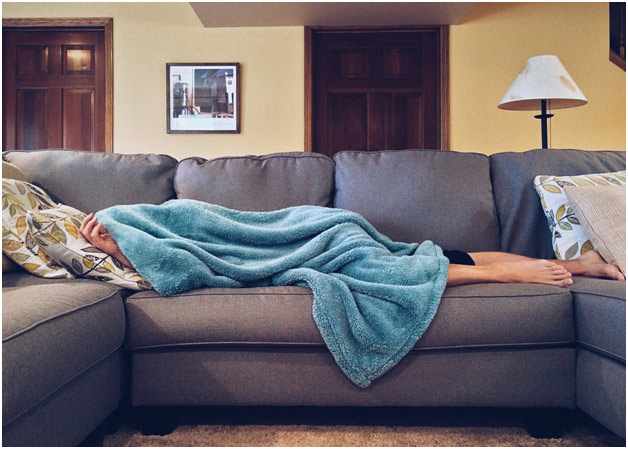Everybody suffers from sleeping difficulties every now and then. You can lose sleep when your normal routine is disrupted by travel, an emergency, or some other unexpected circumstance; when you suffer from stress, worries, or an illness; or from certain unhealthy habits. But if you have trouble sleeping almost every night and the resulting drowsiness, fatigue, and even lethargy interfere with your daily life, you may be suffering from a sleep disorder.
Do you have a sleep disorder?
If you experience any combination of the following, you may have a sleep disorder:
• You wake up feeling tired, and you lack energy most of the day.
• You are often irritable during the day.
• Your daytime drowsiness makes it difficult to stay awake when you’re sitting still, reading,
or watching TV.
• You have difficulty concentrating, even on simple tasks.
• Your reaction time is slower than normal.
• You have a constant need to take a nap during the day.
• You need caffeine or energy drinks to function properly.
• You look tired all the time.
• You have trouble going to sleep at night even when you feel exhausted at the end of the day.
Common types of sleep disorders; which one do you have?
• Insomnia. The condition is characterized by the inability to sleep and/or sleep well. The
major causes of insomnia include, stress, too much coffee, certain medications, jet lag, or
an illness. Anxiety, depression, and other mood disorders, as well as other sleep disorders
can also cause insomnia.
• Sleep apnea. This is a common condition that occurs when breathing repeatedly stops and
starts, usually due to a temporary blockage in the throat, while you’re sleeping causing you
to wake up several times a night. More often than not, you are not even aware when you wake
up and do not remember that you did. Sleep apnea can be dangerous, if it’s a chronic problem.
• Restless leg syndrome. As the term suggests, the condition is characterized by a compulsion
to move the legs, or even the arms, when you’re lying down for the night. The restlessness is
usually accompanied and caused by a tingling, creeping, or uncomfortable sensation in your
limbs.
• Narcolepsy. This is a serious sleep disorder that causes a person to fall asleep during the
day and in the middle of normal activities, such as driving, talking, eating, or working. The
condition has a physiological cause – a brain malfunction which affects the signals for
sleeping
and waking.
• Circadian rhythm sleep disorders. These are sleep disorders caused by by the disruption of
your circadian rhythm – the body’s internal clock that regulates sleeping and waking. These
disorders include:
◦ Jet lag is a common but temporary sleep disorder caused by a radical change in time
zones, which throws off a person’s circadian rhythm.
◦ Delayed sleep phase disorder is characterized by a delayed biological clock, resulting in
later than normal sleeping and waking times. Those with the condition – usually teenagers
– have regular sleeping hours, but these hours are out of sync with normal daily
activities, such as early morning classes. It is common for them to be unable to sleep
earlier than 2 am, which also makes them struggle to wake up before 7 or 8 am.
◦ Shift work sleep disorder, wherein the body’s internal clock is not in sync with work
schedule. The condition affects people who work shifting and abnormal hours and causes
poor quality of sleep, sleep deprivation, lethargy, and productivity problems.
How much sleep is enough?
According to the National Institute of Health’s (NIH) National Institute of Neurological Disorders and Strokes (NINDS), “There is no magic ‘number of sleep hours’ that works for everybody of the same age,” but the average number of hours of sleep per day needed per age range are: 16-18 hours for babies; 9.5 hours for school-age children and teenagers; and 7-9 hours for adults.
If you lack sleep and have any of the abovementioned symptoms, contact a primary care physician near you to determine if you are suffering from a sleep disorder and the treatment options available to you. If left untreated, sleep disorders can affect your mental and physical health.

